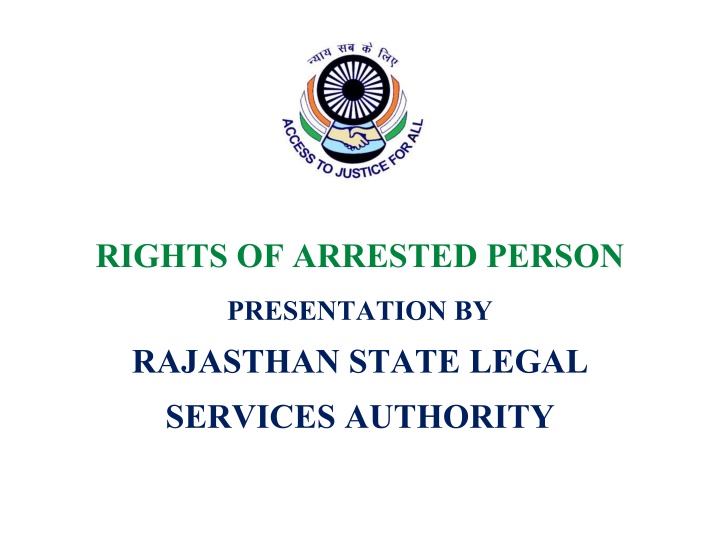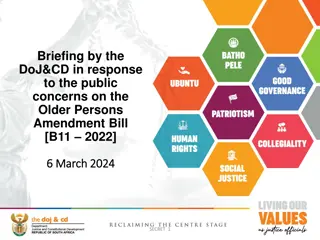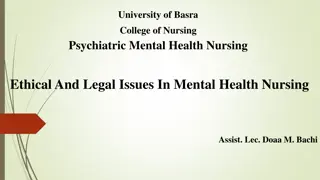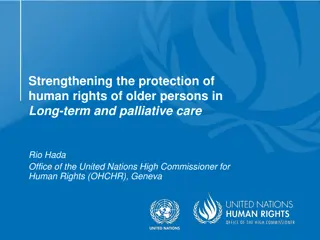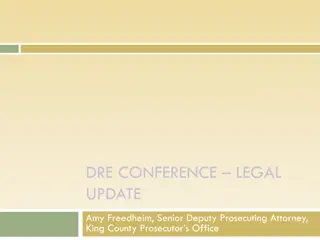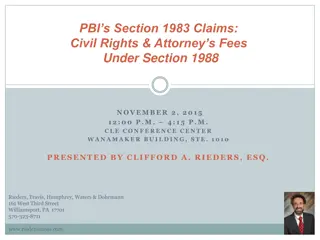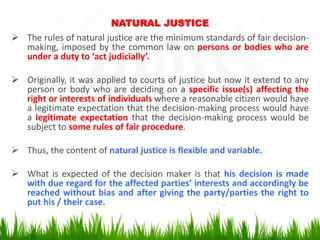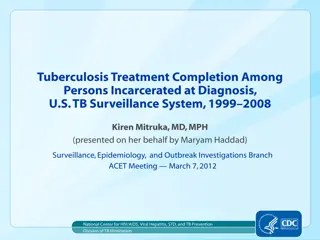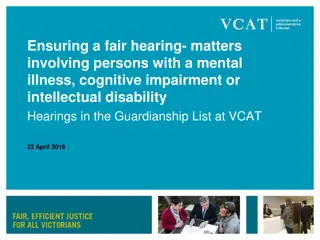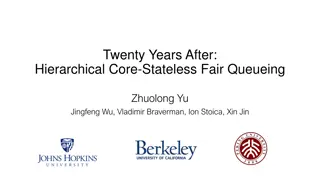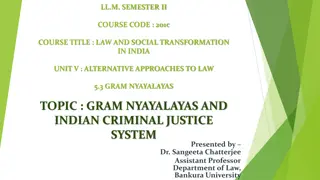Rights of Arrested Persons: Ensuring Justice and Fair Treatment
The Constitution of India guarantees fundamental rights to arrested individuals, including the right to information, legal representation, timely production before a magistrate, and protection against prolonged detention without judicial oversight. Additional rights cover the grounds of arrest, safeguards during detention, access to bail information, and the prevention of arbitrary arrests. These rights emphasize the importance of due process, fair trial, privacy, and dignity for all accused individuals.
Download Presentation

Please find below an Image/Link to download the presentation.
The content on the website is provided AS IS for your information and personal use only. It may not be sold, licensed, or shared on other websites without obtaining consent from the author.If you encounter any issues during the download, it is possible that the publisher has removed the file from their server.
You are allowed to download the files provided on this website for personal or commercial use, subject to the condition that they are used lawfully. All files are the property of their respective owners.
The content on the website is provided AS IS for your information and personal use only. It may not be sold, licensed, or shared on other websites without obtaining consent from the author.
E N D
Presentation Transcript
RIGHTS OF ARRESTED PERSON PRESENTATION BY RAJASTHAN STATE LEGAL SERVICES AUTHORITY
The Constitution of India guarantees several rights to an arrested person under article 22(1) and (2):- 1. Right to be informed, as soon as may be, of the grounds for such arrest. 2. Right to consult and to be defended by legal practitioner of his choice. 3. Right to be produced before the nearest Magistrate within 24 hours with his arrest, excluding the time necessary for the journey from the place of arrest to the court of Magistrate. 4. Right not to be detained in custody beyond the period of 24 hours without the authority of the Magistrate.
Right to know the grounds of arrest I.Section 50 (1) Cr. P.C. II.Section 55 Cr. P.C. III.Section 75 Cr. P.C.
(b) Safeguards regarding arrest and detention (c) Right to be informed of right to bail I. Section 50 (2) of Cr.P.C. (d) Right to be taken before a Magistrate without delay
I. (e)Right of not being detained for more than 24 hours without Judicial scrutiny. To prevent arrest and detention for the purpose of extracting confessions, or as a means of compelling people to give information. III. To prevent police stations being used as though they were prisons a purpose for which they are unsuitable: and IV. To afford to an early recourse to a judicial officer independent of the police on all questions of bail or discharge. II.
(f) Medical Examina
(II) Right to Silence (III) Right to consult and to be defended by a legal practitioner IV) Right to fair trial V) Speedy trial Section 309 Cr.P.C (VI) Right to set up his case in direct communication with the court Section 313 Cr. P.C. & 314 Cr.P.C.
(VII) Right to produce evidence in his defense Section 313 Cr.P.C. Section 315 Cr.P.C (VIII) Right to Privacy People s Union for Civil Liberties v. Union of India (1996GG) Supp 10 SCR 321 (IX) Right to life and dignity
(X) Right of Women accused. (XI) Rights of a Juvenile in conflict with law. The Juvenile Justice (Care and Protection of Children) Act, 2000. (XII) Right to seek bail on serving more than one half of the maximum possible sentence:
